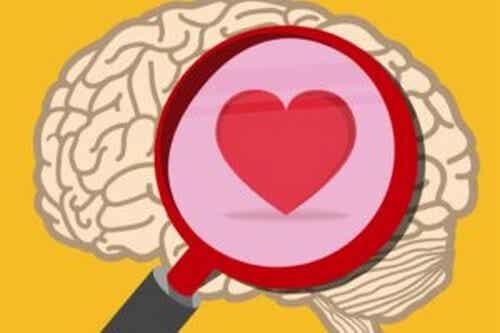Have you ever been unable to express the anger you felt? When someone has hurt you, did you take it out on yourself, with the thoughts and behaviors that widened the wound? If so, this article is for you.

Last update: Augusts 31, 2020
Despite the bad reputation it enjoys, if well managed, anger is a valuable help. There are people, however, who tend not to express the anger they feel, even when someone has hurt them or treated them unfairly. This is a painful situation.
While always seeming calm and calm, the truth is that these people get angry and how; they know well that others have violated their rights. Their approach strategy, however, involves excessive restraint, often driven by insecurity and poor social skills. The energy of their anger thus turns against them and their well-being.
Why do you sometimes have to get angry?
Anger, like the rest of the core emotions, performs several fundamental functions. Despite its reputation as a negative emotion, it is needed in situations that can undermine one's integrity. This means that anger has a fundamental role for survival, consequently for the evolution of the species.
From a physiological point of view, anger is easy to recognize. It increases the production of adrenaline and noradrenaline, involved in emotions such as fear and aggression. Blood pressure spikes and so does breathing. The body prepares for confrontation.
In addition to ensuring survival, anger stimulates change. Getting angry is an unpleasant condition that forces, due to the great expenditure of energy, to change what bothers us. It can also lead to defending personal boundaries when they risk being harmed.
People who never get angry… is that really so?
Some people feel unable to express their anger. This is a counterproductive situation, in which one undergoes without reacting. Among the factors that explain this phenomenon we find:
- The happycracy society. It is forbidden to be angry, sad or afraid. Always be happy. According to this new fashion, anger belongs to that group of emotions wrongly indicated as negative and unacceptable in any situation.
- If I get angry, others can get angry. Fear of someone else's reaction can lead to not expressing one's anger. If we have adopted the role of always cheerful or understanding people, it can be particularly difficult to show others this unexplored side of our personality.
- The family inheritance it also provides for the emotional management manifested by the main attachment figures. Perhaps our parents were reluctant to express their anger, and so were we. Likewise, having witnessed extreme displays of anger could lead to developing a defense mechanism by which such emotion is avoided at all costs.
- Difficulties associated with the social sphere or with shyness. It may happen that you don't show anger because of the enormous stress that comes with it. The individual feels so tense or socially anxious that he is unable to express his emotions naturally.
What are the consequences of not expressing anger?
There are several reasons why a person may find it difficult to manage anger or anger, and this can have repercussions on different contexts of personal life.
As explained, anger is an emotion that performs different functions on a psychological and physiological level. There will therefore be consequences if we tend to repress it. Not expressing anger can result in the following situations:
- Not knowing how to set limits. Whether it is in the workplace, social, sentimental or others, repressing anger does not allow you to adopt assertive behaviors. This inability is usually associated with a passive communication style.
- Feeling of stagnation. You may feel that something is wrong or that it needs a change. Still, difficulties in expressing anger can make the feeling of inadequacy that precedes change unbearable.
- The emotion did not subside and re-emerged in a second moment. When we repress any emotion, it will not tend to magically disappear. Expressing an emotion actually causes emotional discharge that relieves tension. Since there is no room to express anger, it could build up and explode later at the slightest stress factor.
The cathartic anger that gives us relief
Anger stimulates profound changes, on a personal and social level; it is, in fact, of a defense mechanism in the presence of agents that attack integrity of the person and, finally, acts as a shock absorber for anxiety. All this when it is well managed.
Some people, however, are unable to express anger and all the feelings associated with it. Social reinforcement of smiles or personal experiences of how others have handled the same emotion can hinder adaptive expression of anger. In addition to this, the tendency to repress it may depend on problems of shyness or fear of reaction others.
Why not expressing anger is counterproductive
It is especially important to work on the right way to express anger. Otherwise, we may not respond assertively when needed, when we feel tired or when we build up tension, which will then explode.
It happens to everyone that we have to deal with situations that require calm, in which we burst into tears or that cause us deep anguish. Likewise, there will be situations in which we will feel particularly hurt or exhausted; perhaps, at that moment, we will need to get angry. To express that anger that, if expressed intelligently, frees, soothes and saves.


























